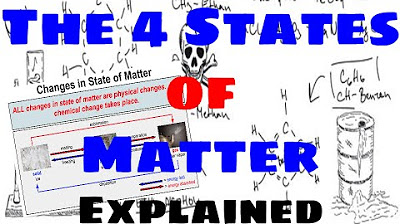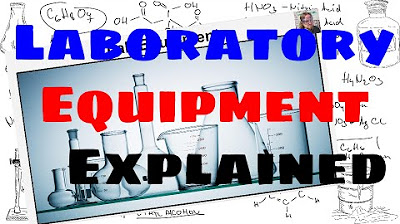The 14th Amendment Explained: US Government Review
Summary
TLDRIn this educational video, Mr. Hughes and Gome Chomsky explore the 14th Amendment of the U.S. Constitution, focusing on its historical context, key sections, and its impact on civil rights. They discuss the amendment's role in correcting the Dred Scott decision, providing citizenship rights, and ensuring equal protection under the law. The video also covers significant Supreme Court cases like Plessy v. Ferguson and Brown v. Board of Education, illustrating the amendment's evolution and its ongoing relevance in contemporary legal debates.
Takeaways
- 📜 The 14th Amendment is part of the U.S. Constitution and was passed after the Civil War as one of the Reconstruction Amendments.
- 🏛️ It was designed to address the citizenship issue that the Supreme Court's Dred Scott decision had highlighted, stating that African Americans were not citizens of the United States.
- 👥 Section one of the 14th Amendment declares that all persons born or naturalized in the United States, and subject to the jurisdiction thereof, are citizens of the United States and of the state wherein they reside.
- 🚫 The amendment prohibits states from abridging the privileges or immunities of citizens, depriving any person of life, liberty, or property without due process of law, or denying any person equal protection under the law.
- 🔄 Section two of the amendment corrects the Three-Fifths Compromise by stating that all citizens, except Native Americans, should be counted for full representation.
- ⛔️ Section three is a punitive measure against former Confederate leaders, preventing them from holding office unless granted by a two-thirds vote of Congress.
- 🛡️ Section five gives Congress the power to enforce the provisions of the amendment.
- 🚂 Plessy v. Ferguson (1896) was a Supreme Court case that upheld the constitutionality of racial segregation under the 'separate but equal' doctrine, which was later overturned.
- 🏫 Brown v. Board of Education (1954) was a landmark Supreme Court case that ruled racial segregation in public schools was inherently unequal, thus violating the 14th Amendment.
- 📚 The 14th Amendment has been used to selectively incorporate other amendments, ensuring that individual rights are protected at the state level, as seen in cases like Mapp v. Ohio and Miranda v. Arizona.
Q & A
What is the 14th Amendment and why was it created?
-The 14th Amendment is a part of the United States Constitution that was created to address issues arising after the Civil War. It was designed to correct the Supreme Court's decision in the Dred Scott case, which declared that African Americans were not citizens of the United States. The amendment was also used as a condition for Southern states to re-enter the Union.
What are the Reconstruction Amendments?
-The Reconstruction Amendments are the 13th, 14th, and 15th amendments to the United States Constitution. They were passed following the Civil War to address the issues of slavery, citizenship, and voting rights.
What was the immediate historical context for the 14th Amendment?
-The immediate historical context for the 14th Amendment was the end of the Civil War and the need to reintegrate the Southern states into the Union. It was passed in 1868 by the Radical Republicans in Congress as a means to ensure the rights of the newly freed slaves.
How does the 14th Amendment address citizenship?
-The 14th Amendment addresses citizenship by stating that 'All persons born or naturalized in the United States, and subject to the jurisdiction thereof, are citizens of the United States and of the state wherein they reside.' This effectively overruled the Dred Scott decision and granted citizenship to all persons born in the U.S., including former slaves.
What is the 'Privileges or Immunities' clause of the 14th Amendment?
-The 'Privileges or Immunities' clause of the 14th Amendment states that 'No State shall make or enforce any law which shall abridge the privileges or immunities of citizens of the United States.' This clause is meant to protect the rights of citizens from being infringed upon by state laws.
What is the significance of the 'Due Process' clause in the 14th Amendment?
-The 'Due Process' clause in the 14th Amendment ensures that no person can be deprived of life, liberty, or property without due process of law. It is a fundamental protection against arbitrary actions by the government, ensuring that legal procedures are followed before any such deprivation can occur.
How did the Plessy v. Ferguson case impact the interpretation of the 14th Amendment?
-The Plessy v. Ferguson case in 1896 upheld the concept of 'separate but equal,' which allowed for racial segregation under state laws. This decision effectively undermined the 14th Amendment's equal protection clause and led to decades of legal segregation and discrimination in the South.
What was the outcome of the Brown v. Board of Education case in relation to the 14th Amendment?
-The Brown v. Board of Education case in 1954 overturned the 'separate but equal' doctrine established in Plessy v. Ferguson. The Supreme Court ruled that racial segregation in public schools was inherently unequal, thus violating the 14th Amendment's equal protection clause.
How has the 14th Amendment been used to incorporate other amendments?
-The 14th Amendment has been used to selectively incorporate other amendments, meaning that certain protections of the Bill of Rights have been applied to the states through the due process clause of the 14th Amendment. This process ensures that states cannot violate certain fundamental rights.
What are some modern applications of the 14th Amendment?
-Modern applications of the 14th Amendment include its use in cases involving gay marriage and equal protection. It has been argued that different sets of laws for different groups of people violate the equal protection clause of the 14th Amendment.
Outlines

Этот раздел доступен только подписчикам платных тарифов. Пожалуйста, перейдите на платный тариф для доступа.
Перейти на платный тарифMindmap

Этот раздел доступен только подписчикам платных тарифов. Пожалуйста, перейдите на платный тариф для доступа.
Перейти на платный тарифKeywords

Этот раздел доступен только подписчикам платных тарифов. Пожалуйста, перейдите на платный тариф для доступа.
Перейти на платный тарифHighlights

Этот раздел доступен только подписчикам платных тарифов. Пожалуйста, перейдите на платный тариф для доступа.
Перейти на платный тарифTranscripts

Этот раздел доступен только подписчикам платных тарифов. Пожалуйста, перейдите на платный тариф для доступа.
Перейти на платный тарифПосмотреть больше похожих видео

The Four States of Matter - Explained

Lab Equipment - Explained

3. Gr 11 Life Sciences - Population Ecology - Theory 3 Mark Recapture Method

4. Gr 11 Life Sciences - Population Ecology - Worksheet 1

PENJASKES KELAS X - SOFTBALL

Introduction to Culture [AP Human Geography Review Unit 3 Topic 1]

Menentukan Mr ( massa molekul relatif )
5.0 / 5 (0 votes)
